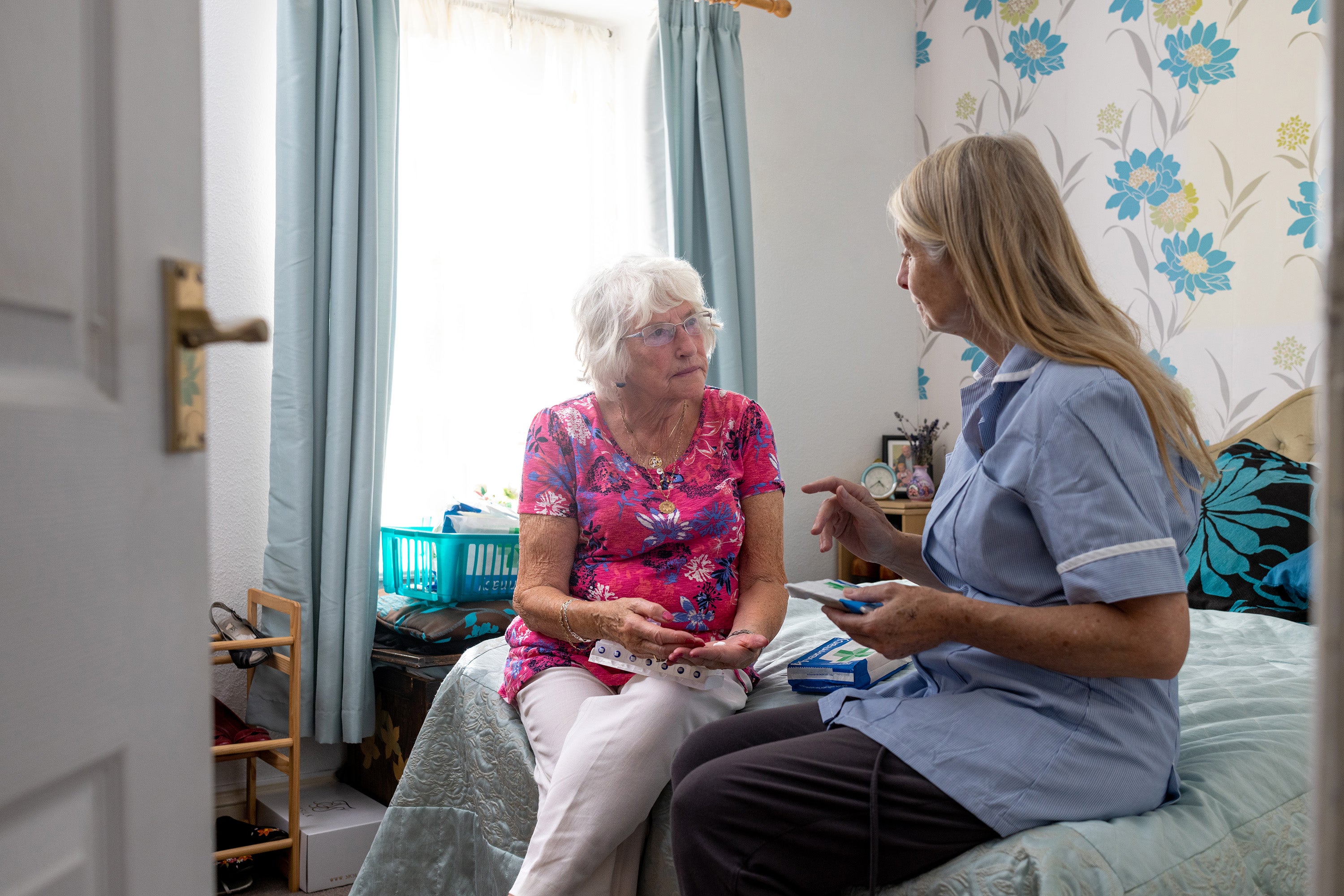CareLineLive expands partnership with Mid and South Essex NHS Trust
THE ARTICLES ON THESE PAGES ARE PRODUCED BY BUSINESS REPORTER, WHICH TAKES SOLE RESPONSIBILITY FOR THE CONTENTS

CareLineLive is a Business Reporter client
Innovative hospital discharge model implemented by one NHS Trust leads to additional release of 60 beds daily
CareLineLive, the all-in-one home care management software provider, has announced the expansion of its partnership with Mid and South Essex NHS Foundation Trust (MSEFT), which frees up 60 beds per day of patients that would otherwise remain in hospital awaiting discharge.
Most hospitals in the UK suffer from what is sometimes called “bed blocking”, where patients well enough to be discharged are unable to go home as they are waiting for social care packages to be put in place. This can result in long waits in A&E before other patients are admitted to hospital wards and long delays for ambulances as they wait for a space to become available.
MSEFT began dealing with the issue of delayed discharges in 2016 via a “bridging service” where it started to provide short-term domiciliary care services directly to patients leaving hospital while waiting for the local authority to commission a longer, more sustainable care package. Between April and December 2022 this service alone resulted in 11,500 saved bed days.
Building on the bridging concept, the trust pioneered a more holistic service in June 2022 called the Southend Enhanced Discharge Service (SEDS). SEDS is a discharge to assess service that provides a full and complete therapy-led hospital discharge assessment at home for Southend residents rather than an assessment being provided by the hospital before discharge. It enables patients to leave hospital sooner with appropriate provision of care at home, where they then tend to recover more quickly.
Physiotherapists and occupational therapists are involved in assessing patients in the context of their own home rather than on a hospital ward. It has also led to significantly more efficient triage to appropriate community-based services (such as reablement services, long-term domiciliary care support, voluntary sector support, occupational therapy and physiotherapy) than previous systems.
This creative model of discharge has resulted in considerable efficiencies and improvement to patient care. John Walter, General Manager of Integrated Care at MSEFT, said: “In early 2022 a large number of Southend residents were delayed in Southend Hospital waiting for their social care package to start, totalling 570 lost bed days each month. Since October 2022, thanks to SEDS, this has now been significantly reduced to 270 bed days, meaning our patients are getting home quicker to recover and the hospital has more beds available for those who need them. We still have a way to go to bring this to zero, but it shows that SEDS is making improvements and moving in the right direction.”
Between June and December 2022, the SEDS service resulted in 5,070 saved bed days which, combined with the bridging service, gave a total saving of 16,570 bed days. The projected saving for the year April 2022 to March 2023 is predicted to be around 22,000 bed days, equating to 60 beds per day.

In Southend, every hospital discharge for patients requiring a new package of care is via SEDS. This includes patients who may be at risk of falling at home, people with chest infections or those with mobility issues. SEDS delivers the immediate home care that is required and then therapists assess each patient once at home, working with them and collaboratively with social services and the wider multi-disciplinary team to determine their ongoing care needs. Within 14 days, 12 to 15 per cent of patients are discharged with no ongoing care, 40 to 50 per cent are discharged into reablement services and 30 to 35 per cent are discharged into longer-term social care. Within this short time 25 to 30 per cent of all patients recover to the point that their level of care can be safely reduced, highlighting that having the right care and therapy support following discharge is essential to enable people to recover their independence.SEDS has been developed in partnership with MSEFT and Southend Council and works closely with other health and social care partners across southeast Essex.
CareLineLive provides the underpinning care management software that manages the home care services. CareLineLive is an innovative, easy to use home care management system that digitises operations such as rostering client visits and eliminates the need for paper-based administration.
In traditional settings all care notes and visit schedules are paper-based, with staff having to drive to the office to pick up documents before visiting clients. Because CareLineLive’s real time software can be accessed from any internet-enabled device, providing managers, carers and therapists an immediate view of patient, rostering and care records, MSEFT was able to expand its bridging service during the height of Covid-19 despite restrictions on office-based activity.
CareLineLive has enabled the trust to scale these innovative services quickly without needing to have large increases in administrative overhead costs.
John Walter, General Manager of Integrated Care at MSEFT, said: “CareLineLive has helped us take our service into the 21st century. It is a fantastic electronic record solution for any service that has a need for remote patient care in the community. It enables staff to work remotely, document remotely and be scheduled electronically. It has enabled us to improve efficiency and capacity and reimagine patient care.
“CareLineLive is a great solution if you want to be more efficient, transform your services and future-proof your ways of working and delivering patient care. It helps services be more sustainable, be more GDPR-compliant and mitigate against data issues. It is also scalable and functions in real time, so we always have an up-to-date assessment of what is happening with each patient.”
For more information on CareLineLive please visit carelinelive.com.

Bookmark popover
Removed from bookmarks